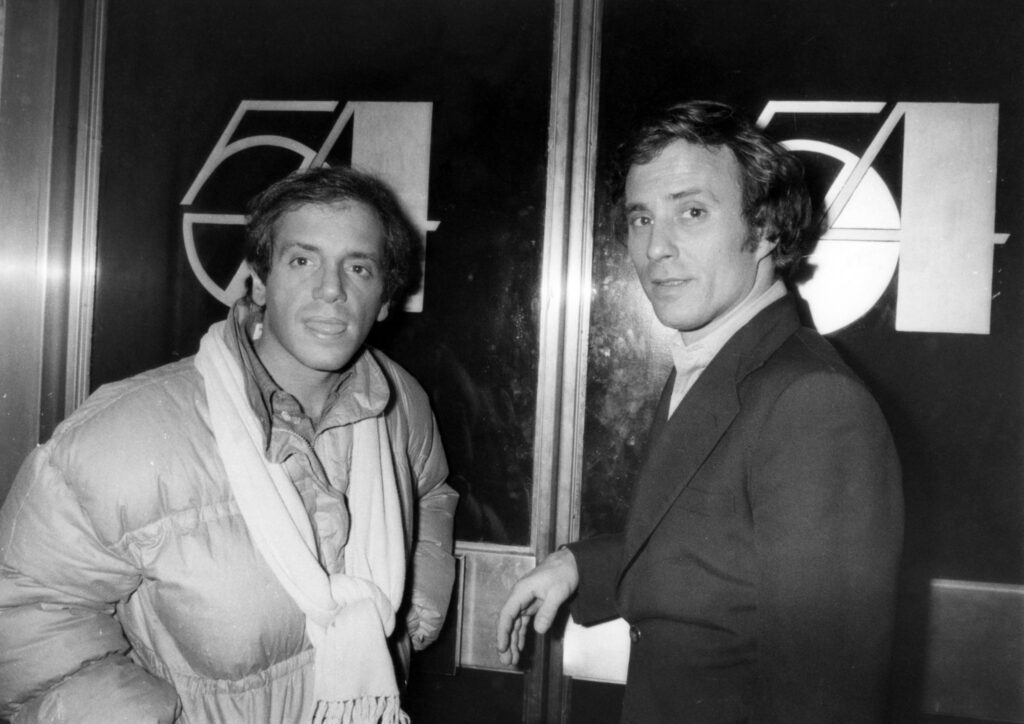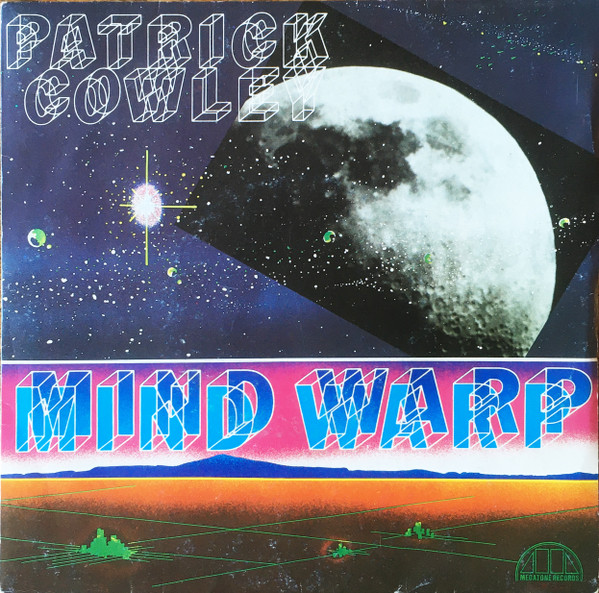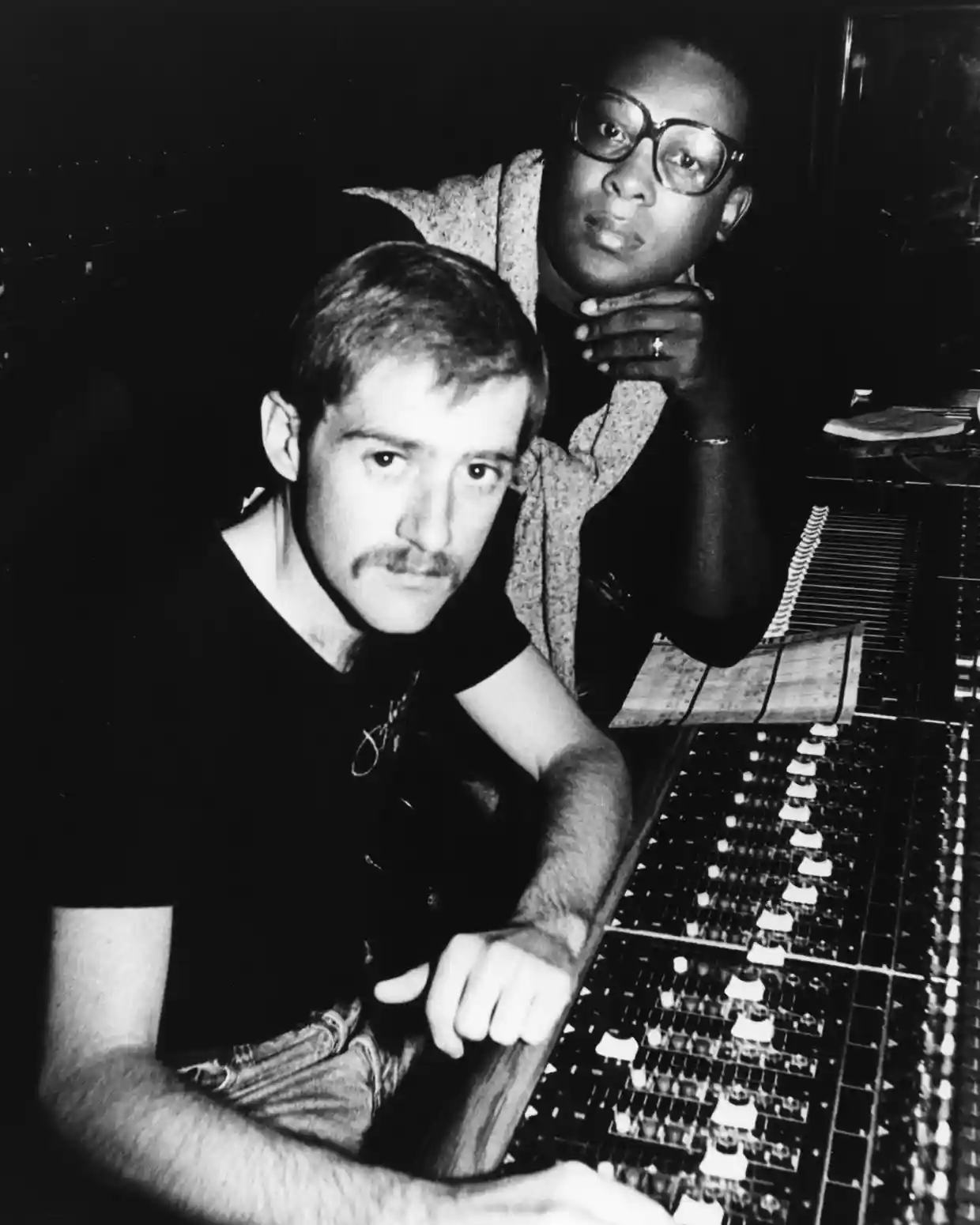Fakeman took some time to reflect on the legacy of one of the key influencers in the history of the electronic music scene. The pioneer, Patrick Cowley.
Disco. Say it with me – Dis-co. What comes to mind when you say the word? Glitter balls? Movie stereotypes with flares and epic shirt collars? Sure… disco and the disco scene enjoyed and encouraged the flamboyant, but it’s roots are grounded in self expression. The opportunity to be who you wanted to be. What started as an East-Coast US movement amongst the minority black, latin and gay communities in the New York boroughs of Brooklyn and Queens and cities such as Philadelphia was to explode into a world-wide movement.
In his now infamous New York Magazine article ‘Tribal Rites of the New Saturday Night’, journalist Nik Cohn wonderfully described the juxtaposition that existed between the 1970’s Manhattan elite and the young teens and twenty-somethings of New York City’s less affluent boroughs:
They are not so chic, these kids. They don’t haunt press receptions or opening nights; they don’t pose as street punks in the style of Bruce Springsteen, or prate of rock & Rimbaud. Indeed, the cults of recent years seem to have passed them by entirely. They know nothing of flower power or meditation, pansexuality, or mind expansion. No waterbeds or Moroccan cushions, no hand-thrown pottery, for them. No hep jargon either, and no Pepsi revolutions. In many cases, they genuinely can’t remember who Bob Dylan was, let alone Ken Kesey or Timothy Leary. Haight Ashbury, Woodstock, Altamont—all of them draw a blank. Instead, this generation’s real roots lie further back, in the fifties, the golden age of Saturday nights.
Fast forward a few years and unsurprisingly, Manhattan caught the bug. Steve Rubell and Ian Schrager opened Studio 54 in April of ’77. Famously choosy about who they let work and party at the venue, many of New York’s young disco fans whom took the tunnel or bridge to get to Manhattan were often sent home for not making the ‘grade’. However, by the time Studio 54 opened it’s doors, disco was everywhere and clubs had been popping up in every major city in the US.

Like so many music genre’s before it, disco had been born out of a public protest against the mainstream of the time, but it was in these nationwide clubs where it had truly found its pace. And it was the underground producers and DJ’s, turned superstars, who were responsible for making disco what it was. The very same producers and DJ’s who are also responsible for disco’s various iterations and legacy today. Producers like Patrick Cowley.
Cowley was in his 20’s by the time the disco boom hit the US. Born in Buffalo, New York in 1950, Cowley spent his teens as part of various bands before moving to San Francisco in the early 1970s. The epicentre of self-expression. San Fransisco was a creative hub of artists and young rebels. Sexual and personal freedom was as standard and the coming years would see the explosion of the San Francisco gay scene. A scene that would initially be entrenched in disco … but in the decade following his arrival in the city, San Francisco (and ultimately the rest of the world) would also benefit from Cowley’s pioneering evolution of the sound.
Whilst having a history of being a drummer, it was the synthesiser that ultimately seduced Cowley. An instrument still in its relative infancy in comparison to others, the analogue synthesiser was growing in a new form of popularity during the 70s. Almost mysterious in its potential, Cowley was able to stretch its abilities and explored its limits. We now know just how prolific Cowley’s music production was in these years with the subsequent albums that were released decades after his death, but more on that in a bit.
It’s well documented that Cowley was a regular in the San Francisco energetic and party-centric gay scene and this, coupled with his music studies was bringing about a new sound to his music. Strongly disco inspired but with a faster beat, two of his compositions produced during this time were even picked up by a studio and used as the soundtrack for gay porn movies. More widely released on digital and physical formats decade later.
What is widely regarded as the turning point for Cowley was his meeting with music producer Sylvester in ’78. Sylvester himself was enjoying a fledgling career, having the year before released his 3rd album – the self titled EP ‘Sylvester’. Up next for him was the iconic ‘Step II‘. ‘Step II‘ was undeniably disco. It’s understood that the album was almost complete when Sylvester had heard Cowley’s synthesizer work and approached him to work on reworking a few tracks that would ultimately make the final album. For both Cowley and Sylvester, this new partnership was a wonderful gateway to new opportunities. They enjoyed huge success with the album and Cowley and Sylvester became production partners. Cowley also joined Sylvester on his world tours in the subsequent years, as well as contributing to his follow-up album, Stars a year later and the undeniably wonderful ‘Do you Wanna Funk?‘ in 1982.
Cowley was making a mark. Much like disco’s founding producers who had come before him, influencing the disco scene and its continued development from behind his synthesizer – not scared to evolve the sound and push the boundaries. What is notable about this time is that Cowley continued to collaborate with those close to him in the San Francisco music scene – musicians and friends he met in the vibrant club scene the city continued to offer in the late 70s and into the early 80s. And, as mentioned, it was this very club scene that was so influential in where Cowley took his sound. By 1981, Patrick dropped ‘Menergy‘ – His celebration of the gay club scene. The title track to a short EP is a true celebration of Cowley’s skills with the synthesizer. What starts as an almost Vangelis-like exploration of sound quickly turns into a harder and faster disco beat with soft vocals (later re-recorded by Sylvester after Cowley’s death and arguably the more popular of the recordings today). ‘Menergy‘ was the most successful of Cowley’s singles, topping the Billboard dance and disco charts in 1981. For me, 43 years later, the track represents a producer loving his craft. He’s clearly having a great time writing and producing music for a scene that he is well established in, socially, musically, emotionally.
Cowley’s also released this next album ‘Megatron Man‘, in ’81. ‘Megatron Man‘ continued the faster disco pace with 9 tracks that showcase Cowley’s production and diversity on the synthesizer. By ’81 this genre / offshoot of disco was starting to build traction as club crowds demanded more from energy from their Saturday nights. Being central to those club scenes, Cowley was dialled into what people wanted.. and thus Hi-NRG and ‘The San Francisco Sound’ was born.
Hi-NRG was unique in that it kept those fun and tongue-in-cheek elements of disco – the lyrics, the vocals, the strings, but with far stronger, booming baselines and synthesizer experimentation. Producers like Cowley were developing what had come before with this exciting new sound so it comes as no surprise that their influence was travelling far and wide. European producers were picking up on Hi-NRG with Italo Disco clearly taking some very strong influences.
1982 represents a hugely conflicting year when looking at Cowley’s life. His success with ‘Megatron Man‘ was undeniable and was motivating him to move to release more of his own music later that year. As well as this he undertook further collaboration work close to home with artists such as Paul Parker and Frank Loverde, the former being on the particularly successful ‘Right on Target’, a personal favourite. But by 1982 Cowley was extremely unwell. At a time where the US and the rest of the world was learning of the virus, Cowley had contracted what would be come to known as HIV / AIDS. With little known treatment Cowley’s prognosis was poor but he was only to become truly aware of that in the latter-part of 82 as his health deteriorated.
The final album to be released whilst Cowley was alive was ‘Mind Warp‘, written and produced at the depths of his illness. Arguably a darker album that its predecessor, ‘Mind Warp‘ sticks to its well established Hi-NRG and disco roots but showcases a technical brilliance and boldness in Cowley’s confidence to lace the album with surprises, such as the use of djembe drums so wonderfully intertwined with analogue synths on ‘Primitive World‘.

Patrick Cowley died in November of 1982 at the age of 32 from what we now know was AIDS related complications. We will never truly know what path his career would have taken next, but what we do know is that he would have continued to make the synthesizer the star. His understated approach to his craft, whilst filled with tongue-in-cheek references was ultimately one of boundary exploration and satisfying the wants and needs of the very people who made him the success he was, the club-goers. His was a short career of innovation and adding a new level of professionalism and betterment to everyone who he collaborated with.
Today, Cowley’s formerly unreleased work continues to find its way into the world via Dark Entries Records who have released a large catalogue of Patrick’s work. Most notably for me is the excellent ‘School Daze‘ and opening track, ‘Zygote‘.
Long before this Cowley renaissance though, it was clear that his influence existed with bands such as the Pet Shop Boys citing Cowley’s work having a significant impact on their sound.
Cowley’s lived at a time where his music was truly inspired by the people and places around him. His collaborators became friends and his friends became collaborators. He appreciated the importance of disco and what it meant for his community in San Francisco as well as the wider world. But he also wasn’t scared to evolve that sounds into what the people wanted and what ultimately became the busy and varied house, nudisco, techno and future funk scenes of today.
We owe a lot to Patrick Cowley.
Now you’ll need to excuse me, I have to return some videotapes.
Additional: Here is Cowley’s 15 minute remix of Donna Summer’s ‘I Feel Love‘ – Enjoy! PF.
